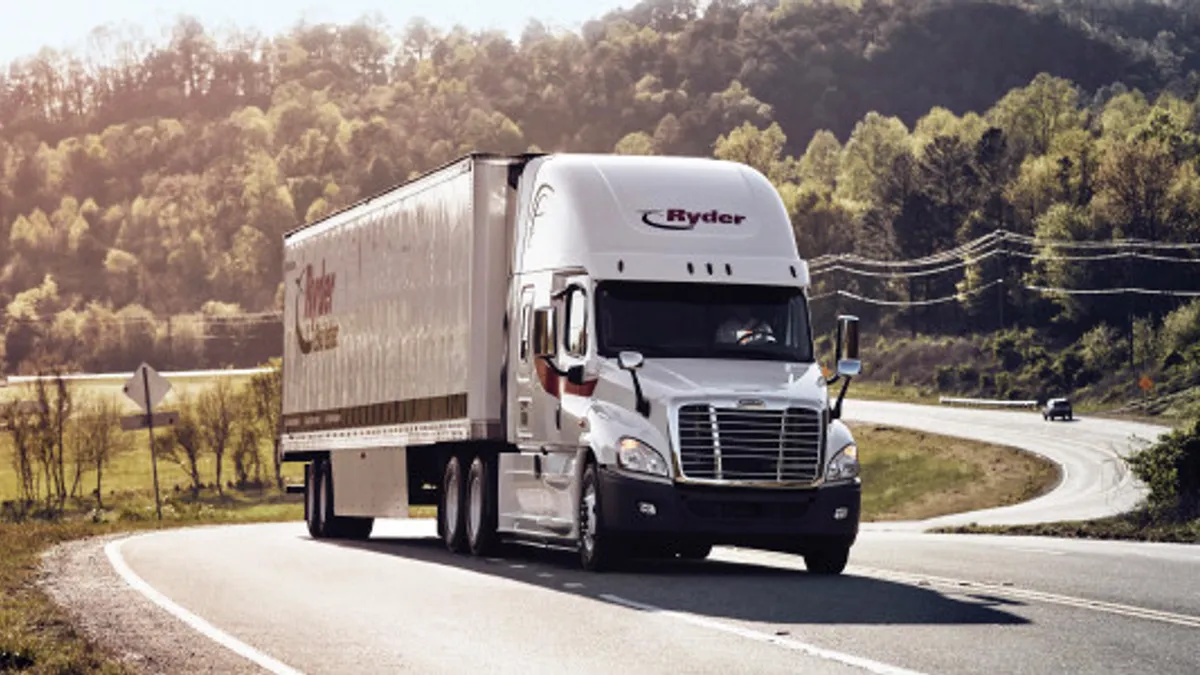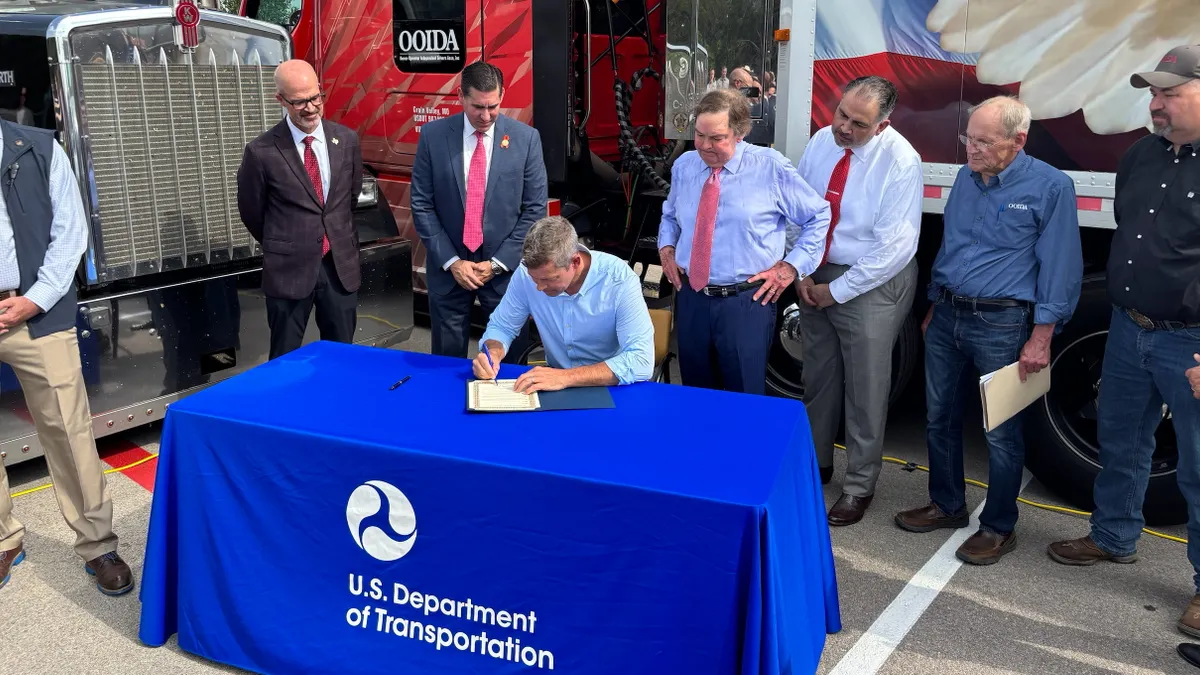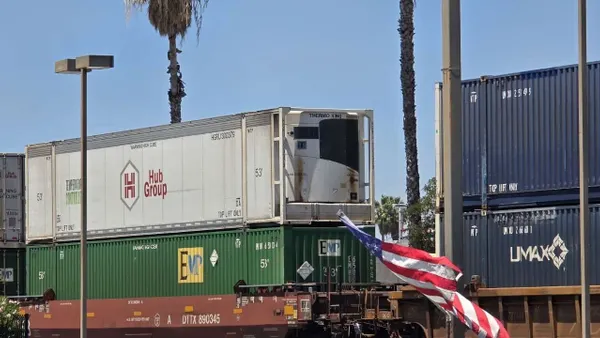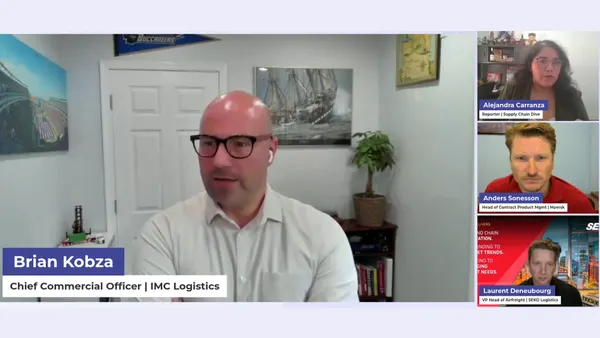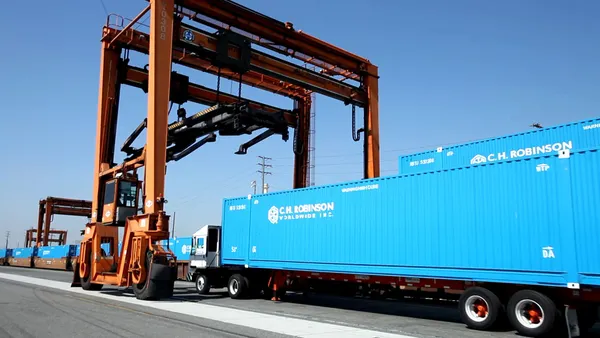Dive Brief:
- Ryder rejected a takeover bid by shareholder HG Vora Capital Management, Robert Sanchez, chairman and CEO, said during an Investor Day presentation on Friday.
- The private equity firm’s $4.4 billion offer last month — at a 20.3% premium — “was not indicative of the value of our company,” Sanchez said. HG Vora owns 9.9% of Ryder.
- “Our board remains committed to maximizing shareholder value and believes that the plan that we have going forward would result in a much higher value for our shareholders,” Sanchez said.
Dive Insight:
Ryder’s executives projected confidence in the carrier’s potential to create future shareholder value, announcing a raised forecast for earnings per share of $13.40-$14.40 for the year — a 40%-50% increase YoY — after rejecting the offer.
“Clearly, for us, we still see plenty of runway with the business going forward,” said Ryder CFO John Diez, a 20-year veteran of the company who has worked on its Fleet Management and Dedicated Transportation Solutions teams.
The company has transformed its business model since 2019 including growing its higher-return Supply Chain Solutions and Dedicated segments, which now account for half of its revenue.
Ryder’s diversification from its leasing business and other shareholder efforts piqued HG Vora’s interest, the private equity firm said in its May 13 letter to the Ryder board.
“[M]anagement made a series of strategic decisions to improve the fundamental profile of the Company by prioritizing adequate returns on capital over fleet expansion, investing in higher growth asset light business segments, underwriting to more conservative residual assumptions and returning capital to shareholders,” said the letter, which was filed with the SEC.
HG Vora and Parag Vora, the firm’s founder, did not respond to Transport Dive’s requests for comment.
HG Vora said in its letter that it invests in companies that are well run but “undervalued by the public markets.” Ryder’s rejection indicated its stance that the offer also undervalued its worth.
Ryder’s market assumptions have not changed, and it raised its earnings forecast despite its own expectations of rentals and used vehicle sales business softening in the second half of the year, Diez told investors during his presentation.
“A lot of hard work has been put into driving this strategy,” Diez said. “It’s exciting to see, if you look at our growth trajectory, we’ve never seen a robust growth trajectory like we’ve enjoyed the last two years. We grew the business double digits."



